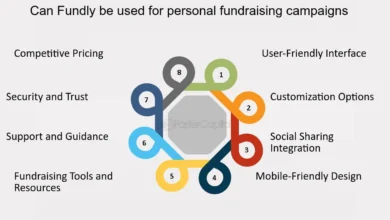Arias Agencies Lawsuit: Unpacking the Case and Its Implications

The recent Arias Agencies lawsuit has captured considerable attention, drawing curiosity and concern from professionals, employees, and the public. Known for their involvement in insurance sales and financial services, Arias Agencies is a subsidiary of American Income Life, a well-established player in the insurance industry. This article delves into the lawsuit, explores its potential impact, and explains the details in a simple yet thorough way. Whether you’re an employee, a client, or an interested bystander, understanding the background and implications of this case is essential.
What is the Arias Agencies Lawsuit?
The Arias Agencies lawsuit involves a series of allegations against the company, primarily concerning the treatment of employees and compliance with labor laws. While legal complaints against corporations aren’t uncommon, this case has gained traction due to the nature of the accusations and the broader implications for the insurance and financial services sectors.
Allegations against Arias Agencies include:
- Unfair compensation structures
- Misclassification of employees
- Alleged pressure on employees to meet high sales quotas
The lawsuit claims these practices may have led to unfavorable working conditions, creating challenges for employees to thrive in their roles.
Background of Arias Agencies
To understand the lawsuit better, let’s take a step back to look at Arias Agencies and its operations. As a branch of American Income Life Insurance Company, Arias Agencies operates across various states, specializing in life insurance products for individuals and families. The agency aims to provide essential insurance coverage, from whole-life insurance policies to term life and supplemental health products.
Key Focus Areas of Arias Agencies
Arias Agencies has a significant focus on:
- Providing reliable insurance options for families
- Creating job opportunities within local communities
- Delivering high-quality customer service to clients
However, despite these goals, reports from former employees and lawsuits highlight potential concerns regarding their internal management practices.
The Core Allegations in the Lawsuit
The Arias Agencies lawsuit raises several core allegations that suggest a pattern of behavior affecting the workforce. Here’s a closer look at these complaints:
- Employee Misclassification
One of the most significant claims involves the misclassification of workers. Misclassification means that employees might be categorized as independent contractors rather than full-time staff. This categorization affects how they are compensated, their eligibility for benefits, and their legal protections under labor laws.
- Unjust Compensation Structures
Another primary grievance is related to compensation structures. Some employees have reported that their pay structure is predominantly commission-based, meaning they are paid according to the sales they make. For those unable to meet the demanding quotas, this can result in inconsistent or inadequate income.
- High-Pressure Sales Environment
The high-pressure sales environment is another focal point in the lawsuit. Some former employees claim they were expected to meet challenging sales targets, often without adequate support or training. This pressure may contribute to burnout and negatively impact overall employee morale.
Understanding the Impact of Employee Misclassification
Misclassification can have substantial repercussions. It’s important to distinguish between an independent contractor and an employee to ensure fair treatment. Here’s a breakdown of the differences:
FeatureEmployeeIndependent Contractor
Job Control Often follows set company guidelines Has control over their work
Tax Withholding Employer withholds taxes Responsible for own taxes
Benefits Often eligible for benefits No access to company benefits
Job Security Higher often has stability Project-based, less stable
When misclassified as independent contractors, employees may miss out on essential benefits such as health insurance, paid leave, and retirement plans. For some, this misclassification may mean a lack of basic financial stability, affecting their well-being.
Why is Compensation Structure Important?
A fair compensation structure is crucial for any employee, especially in sales-driven environments like Arias Agencies. In commission-based roles, income is directly tied to performance, which can be motivating but also highly stressful. Here are some common effects of commission-only pay structures:
- Inconsistent Earnings: Employees may experience fluctuating incomes, which can make financial planning challenging.
- Performance Pressure: High targets can lead to stressful work environments.
- Job Dissatisfaction: If goals are perceived as unrealistic, employees might feel disheartened and undervalued.
A balanced compensation system, ideally with a base salary plus commission, provides more stability and is generally preferred by employees in high-performance roles.
How a High-Pressure Sales Environment Affects Employees
A high-pressure environment can drive results but can also lead to burnout, especially if employees feel unsupported. Some challenges of working in high-pressure sales roles include:
- Mental Strain: Constant pressure to meet quotas can lead to mental fatigue.
- Work-Life Imbalance: Employees may feel compelled to work extended hours to achieve targets.
- Employee Turnover: Dissatisfaction from high pressure often results in higher turnover rates, affecting company morale and stability.
Employees in such environments need strong support systems and regular opportunities for professional growth to prevent burnout and maintain engagement.
Potential Outcomes of the Lawsuit
While the final verdict of the Arias Agencies lawsuit is still pending, the case could lead to various outcomes, not only for the agency but also for the broader insurance industry.
Changes in Employment Policies
If the lawsuit is successful, it may prompt Arias Agencies to revise its employment policies, potentially offering better protections and benefits to employees. This shift could mean:
- Enhanced Benefits: Potentially moving more employees to full-time status with benefits
- Improved Training Programs: Creating supportive resources to help employees meet targets more effectively
- Fair Compensation Adjustments: Ensuring a fairer mix of base pay and commission
Industry-Wide Implications
The lawsuit could also encourage other insurance agencies to examine and adjust their employment practices. As labor laws evolve, agencies across the industry may adopt clearer and more equitable policies to avoid similar legal challenges.
Employee Rights and Protections in Sales Roles
Sales roles are dynamic and rewarding but should also come with appropriate protections. Employees in commission-based roles are entitled to:
- Clear Employment Terms: Companies should clarify job expectations and compensation details.
- Fair Classification: Employees should be accurately classified to ensure proper benefits and legal protections.
- Supportive Work Environment: Sales teams need the right resources to perform effectively without excessive pressure.
By understanding their rights, employees can seek fair treatment and pursue legal action if necessary.
Steps Arias Agencies Might Take to Rebuild Trust
Lawsuits can tarnish a company’s reputation, but there are steps Arias Agencies can take to rebuild trust among employees and clients alike:
- Transparency: Open communication about changes to policies and practices can reassure employees.
- Policy Updates: Implementing policies that prioritize employee welfare is essential for a healthier work culture.
- Focus on Training and Development: Investing in training programs and providing resources to employees can create a more supportive environment.
These steps can help the agency recover its reputation and strengthen its commitment to employee satisfaction.
Final Thoughts on the Arias Agencies Lawsuit
The Arias Agencies lawsuit underscores the importance of fair treatment and ethical employment practices. By prioritizing employee welfare, companies can foster more positive work environments, ultimately benefiting both the employees and the organization as a whole.
While the case is ongoing, its impact could reshape employment practices within the industry, setting new standards for employee rights and company policies. For now, the Arias Agencies lawsuit serves as a valuable reminder of the balance companies must strike between high performance and fair treatment.
Conclusion
The Arias Agencies lawsuit has put a spotlight on issues that often go unnoticed in high-pressure sales environments. As the case develops, its outcome may set important precedents, encouraging companies to prioritize transparent, supportive, and fair work environments.
If you’re a current or former employee, staying informed about the lawsuit and understanding your rights can help you make better career choices. For the industry at large, this lawsuit could encourage a shift toward fairer treatment and compensation practices, making a positive difference for everyone involved.





